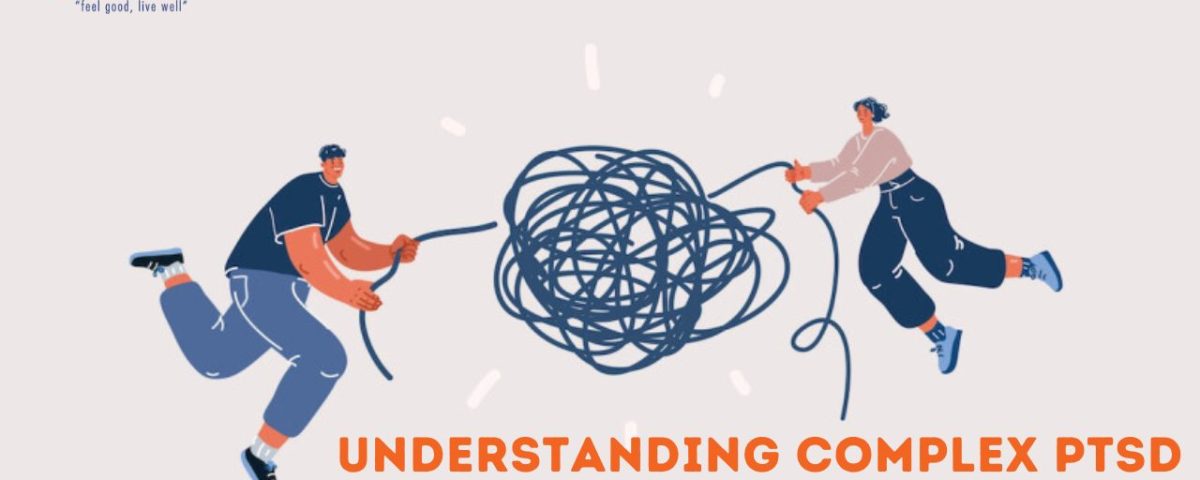Understanding Complex PTSD: A Comprehensive Overview
What is Complex PTSD?
Complex Post-Traumatic Stress Disorder (Complex PTSD or C-PTSD) is a psychological disorder that can develop in individuals who have been exposed to prolonged, repeated trauma over months or years, rather than a single event. This condition goes beyond the symptoms of PTSD, delving into deeper layers of emotional distress and impacting various facets of an individual’s life, including their neurobiological, social, and emotional development, as well as their attachment styles and models of self and others.
ICD Criteria for Complex PTSD
The International Classification of Diseases (ICD) by the World Health Organisation (WHO) outlines specific criteria for diagnosing Complex PTSD. These criteria emphasise the chronic aspect of trauma and the broad spectrum of symptoms that differentiate it from PTSD. Key diagnostic features include:
Re-experiencing the trauma: Persistent and intrusive memories, flashbacks, and nightmares about the traumatic events.
Avoidance: Efforts to avoid thoughts, feelings, or reminders of the traumatic events.
Negative alterations in cognitions and mood: Persistent and exaggerated negative beliefs about oneself, others, or the world; distorted blame of self or others; persistent negative emotional state.
Hyperarousal: Marked alterations in arousal and reactivity associated with the traumatic events, including irritable behaviour, angry outbursts, reckless or self-destructive behaviour, hyper vigilance, exaggerated startle response, concentration problems, or sleep disturbances.
Additionally, symptoms specific to Complex PTSD include difficulties in emotional regulation; disturbances in self-perception; disturbances in relationships with others; somatisation; and preoccupation with the perpetrator of the trauma or preoccupation with revenge.
Types of Trauma Leading to Complex PTSD
Complex PTSD often results from prolonged exposure to traumatic circumstances, such as:
- Long-term domestic violence or abuse
- Childhood physical, emotional, or sexual abuse
- Being a prisoner of war or living in a war-torn region
- Long-term exposure to crisis conditions or extreme poverty
- Human trafficking and enslavement
These types of trauma are characterised by their repetitive nature, the victim’s entrapment, and the deep betrayal by those who were trusted or depended upon.
Effects of Trauma on Neurobiological, Social, and Emotional Development
Trauma, especially when experienced over prolonged periods, can have profound effects on an individual’s development:
Neurobiological Impact
Trauma can lead to changes in the brain, including the amygdala (involved in emotional regulation and fear response), the hippocampus (critical for memory and learning), and the prefrontal cortex (responsible for decision-making, impulse control, and social behaviour). These changes can result in heightened stress responses, difficulty in regulating emotions, and increased susceptibility to anxiety and depression.
Social and Emotional Development
Individuals with Complex PTSD may experience significant disruptions in their social and emotional development. They may struggle with trust, intimacy, and forming healthy relationships. They often feel detached or estranged from others, leading to isolation and loneliness.
Attachment Style
Exposure to prolonged trauma can affect an individual’s attachment style, making them more likely to develop insecure or disorganised attachment patterns. This can result in difficulties in forming stable, trusting relationships in adulthood and may also impact parenting styles and the intergenerational transmission of trauma.
Models of Self and Other
Complex PTSD can deeply affect individuals’ perceptions of themselves and others. Victims may suffer from a distorted sense of self, feeling worthless, helpless, or fundamentally flawed. Their view of others may be skewed by mistrust and fear, expecting betrayal, exploitation, or harm, which can severely limit their ability to engage in healthy, reciprocal relationships.
Complex PTSD is a multifaceted disorder that extends beyond the scope of PTSD, touching every aspect of an individual’s life.
Understanding the depth and breadth of its impact is crucial for effective treatment and support. Through therapy, support groups, and sometimes medication, individuals with Complex PTSD can work towards healing and reclaiming their lives. Awareness and education about this condition are vital in fostering empathy and support for those affected by chronic, complex trauma.
How do you educate yourself on this condition?
CBT Professionals are qualified, and knowledgeable psychologists that can help you with this. We are experienced and passionate in helping yourself, along your own journey with complex PTSD. Or, helping you understand your loved ones or those close to you better.
Reach out today, we are here to help!
Coomera – (07) 5551 0251
Nerang – (07) 5668 3490
Mount Gravatt – (07) 3102 1366
If you, or someone you know, require help, please reach out to organisations like Beyond Blue.
Additionally reach out to these organisations that may be able to help.
- ReachOut (youth mental health service) — online help
- SANE Australia — call 1800 187 263
- Mental Illness Fellowship of Australia (MIFA) — call 1800 985 944
- LifeLine 13 11 14 — for anyone in crisis
(Health Direct, 2020).
If this is an emergency, please contact 000 or visit your local emergency department.
THUMBNAIL CARTOON
https://www.counselling-directory.org.uk/memberarticles/complex-ptsd-what-is-it
THREE CONVENIENT LOCATIONS
MOUNT GRAVATT
Mt Gravatt Medical PrecinctSE 105, 1808 Logan Rd
Upper Mount Gravatt QLD 4122


